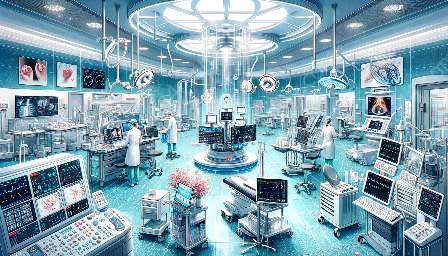Designing medical devices for clinical use involves a range of complex challenges, including ensuring reliability and accuracy in their performance. The field of biomedical instrumentation plays a crucial role in addressing these challenges, combining engineering principles with medical knowledge to create innovative and effective healthcare solutions.
Understanding the Importance of Reliable and Accurate Medical Devices
Reliability and accuracy are critical factors in the design of medical devices for clinical use. These devices are instrumental in diagnosing, monitoring, and treating patients, and any flaws in their design can have serious repercussions for patient safety and care. Ensuring that medical devices are reliable and accurate is essential for maintaining the trust of healthcare professionals and patients alike.
Key Challenges in Designing Reliable and Accurate Medical Devices
1. Safety and Regulatory Compliance
Medical devices must meet stringent safety and regulatory standards to ensure their reliability and accuracy. Designers face the challenge of understanding and adhering to complex regulatory requirements to guarantee that their devices are safe for clinical use.
2. Precision and Sensitivity
Many medical devices require high levels of precision and sensitivity to accurately measure physiological parameters or deliver treatments. Achieving this level of accuracy while ensuring the device is rugged and reliable presents a significant engineering challenge.
3. Human Factors and User Interface
Designing medical devices that are intuitive and user-friendly is crucial for ensuring their accuracy and reliability in clinical settings. Human factors such as ergonomics, user interface design, and user training play a key role in the successful adoption and use of medical devices.
4. Interoperability and Connectivity
Modern medical devices are often required to interface with other healthcare systems and devices, demanding seamless interoperability and connectivity. Designers must navigate interoperability challenges to ensure that their devices can communicate effectively with other components of the healthcare ecosystem.
5. Environmental Factors
Medical devices are subjected to a range of environmental conditions in clinical settings, including temperature variations, humidity, and exposure to contaminants. Designing devices that can reliably operate in diverse environmental conditions is a critical challenge for engineers and designers.
The Role of Biomedical Instrumentation in Addressing Challenges
Biomedical instrumentation encompasses the design and development of medical devices, measurement instruments, and systems that are used in healthcare settings. It integrates principles from engineering, physics, biology, and healthcare to create innovative solutions tailored to the needs of medical professionals and patients.
Biomedical instrumentation plays a crucial role in addressing the challenges of designing reliable and accurate medical devices. By leveraging advanced technology and multidisciplinary expertise, biomedical instrumentation specialists contribute to overcoming the complexities associated with medical device design for clinical use.
Contributions of Biomedical Instrumentation to Overcome Challenges
1. Advanced Sensing and Measurement Technologies
Biomedical instrumentation experts develop advanced sensing and measurement technologies that enable accurate data acquisition and monitoring. These technologies are instrumental in enhancing the reliability and accuracy of medical devices by ensuring precise and consistent measurements.
2. Human-Centered Design Principles
By adopting human-centered design principles, biomedical instrumentation specialists contribute to the creation of user-friendly medical devices. Through the integration of ergonomic and intuitive design elements, the usability and reliability of these devices are significantly improved.
3. Compliance with Regulatory Standards
Biomedical instrumentation professionals possess expertise in understanding and navigating complex regulatory requirements. Their knowledge and experience in compliance ensure that medical devices meet safety and performance regulations, addressing a critical challenge in device design.
4. Integration of Connectivity Solutions
Biomedical instrumentation specialists focus on developing connectivity solutions that facilitate seamless integration of medical devices with healthcare information systems. This emphasis on interoperability helps to overcome challenges related to connectivity and data exchange in clinical environments.
5. Durability and Reliability Engineering
Experts in biomedical instrumentation bring a focus on the durability and reliability of medical devices, addressing environmental challenges and ensuring that devices can consistently perform under varied conditions in clinical settings.
Conclusion
Designing reliable and accurate medical devices for clinical use is a multifaceted endeavor that involves overcoming numerous complex challenges. The field of biomedical instrumentation plays a pivotal role in addressing these challenges, offering innovative solutions and expertise to ensure that medical devices meet the stringent requirements of clinical practice.
By exploring the complexities and considerations in creating dependable medical devices, we gain a deeper understanding of the critical role that biomedical instrumentation plays in advancing healthcare technologies and improving patient care.


